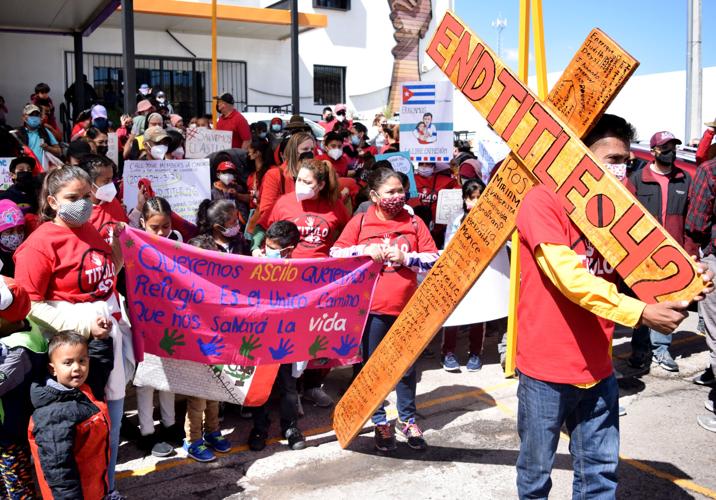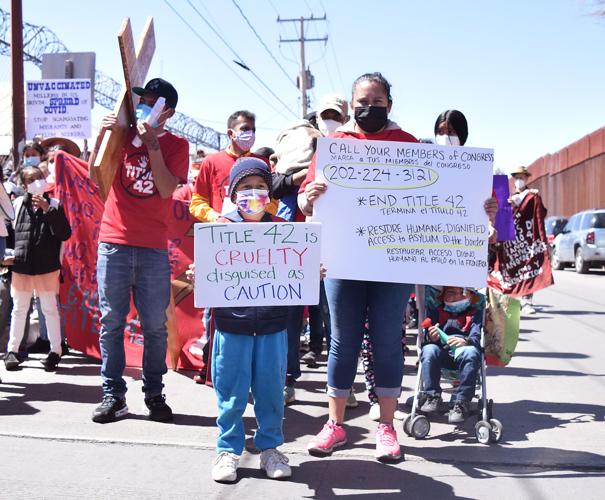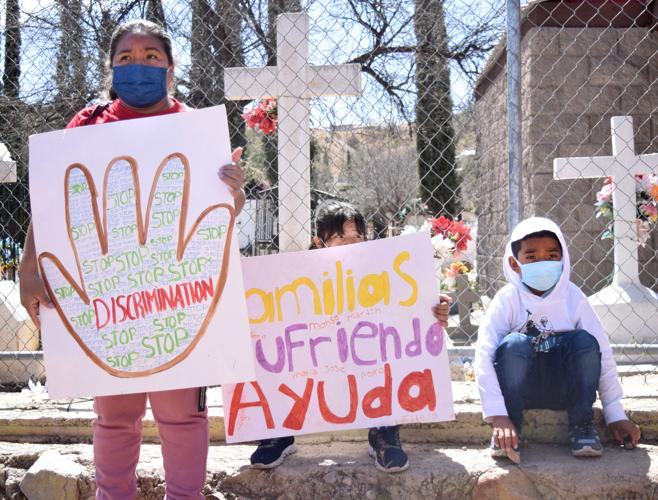Arizona’s U.S. senators are asking President Joe Biden to keep a public health policy in place that allows the government to quickly expel migrants who enter the country without documentation, even as migrants and human rights groups call for an end to the policy and a restoration of the asylum process.
Democratic Sens. Kyrsten Sinema and Mark Kelly said in a March 24 letter that an abrupt end to Title 42, originally put in place by the Trump administration in response to the pandemic, would greatly increase strain on Arizona border communities.
“Given the impacts that changes to Title 42 could have on border communities, border security, and migrants, we urge your Administration not to make any changes to Title 42 implementation until you are completely ready to execute and coordinate a comprehensive plan that ensures a secure, orderly, and humane process at the border,” the senators wrote.
They said removing Title 42 without a firm plan in place risks the health and safety of Arizona communities and migrants.

Arizona senators Mark Kelly, left, and Kyrsten Sinema
Any changes to Title 42 require coordination between the Centers for Disease Control and Prevention and the Departments of Homeland Security, State, Justice and Health and Human Services, the senators said. Also needed are planning and communication with border communities and stakeholders, including local government leaders and community organizations providing services to migrants, they said.
“Such groups in Arizona have not been consulted about Title 42 changes,” the letter says. “Until the Administration does that type of consultation with local government leaders and nonprofits along the border, it is premature to consider changes to Title 42 authorities.”
The senators said they have seen no evidence of any plan that would maintain a “humane and orderly process” if the government ends Title 42.
Migrants have a different wish
Three days before Sinema and Kelly sent their letter, hundreds of migrants and supporters marched in downtown Nogales, Sonora, calling for an end to Title 42.
The migrants marching on March 21, the two-year anniversary of the policy, said Title 42 essentially cuts them off from applying for asylum, a process that’s enshrined in both international and domestic law.
Migrants march on second anniversary of Title 42. Video by Danyelle Khmara/Arizona Daily Star
The Biden administration has to decide whether to renew the policy in early April, and migrants and their advocates hope to see it end and the asylum process restored.
“We will continue to advocate for people’s rights to be respected,” said Chelsea Sachau, managing attorney of the Florence Project’s Border Action Team, which provides free legal services to migrants.

Victor, who fled his home in southern Mexico after his life was threatened, leads a march of migrants and allies on March 21 in Nogales, Sonora, calling for an end to Title 42, a public health policy that the U.S. uses to quickly expel migrants from the country.
Under Title 42, the U.S. has expelled more than 1.7 million migrants, often into dangerous situations similar to why they left their homes, such as threats of violence, extortion and discriminatory rents and wages.
One such migrant, Victor, fled Guerrero, Mexico, with his wife and three children when his life was threatened. He asked the Star not to use his last name because he doesn’t feel safe from the threats that caused them to leave their home.
With a sibling living in Phoenix, Victor had hoped when he and his family arrived at the border eight months ago, they would be allowed to seek political asylum in the U.S.
Like so many others, he feels they have nothing left to do now but wait for Title 42 to end.
“We hope President Biden listens to us,” Victor said. “We don’t want any handouts. We just want stability and security for our children.”
New resources
Many humanitarian aid organizations along the border are already stretched thin. Organizations and migrant shelters are in place to help but they need more resources from the federal government, says Sachau.
The $1.5 trillion spending bill that became law on March 15 does contain more resources, including $150 million for the Emergency Food and Shelter Program to assist migrants, a 36% increase from last year. Locally and nationwide, migrant-aid organizations have been waiting for the federal government to come through with more funding to replenish dwindling resources.
Since March 2021, Pima County has received more than $10 million from last year’s allocation to the program, run by the Federal Emergency Management Agency. The county and local humanitarian organizations had been waiting anxiously for the new allocation in order to continue covering the $1.3 million monthly they are now spending on programs that provide services to asylum seekers, a cost that would likely increase if Title 42 was ended.
Apart from the $150 million for local communities to assist migrants, new border funding includes:
$100 million for Border Patrol hiring and retention;
More than $1.2 billion for border management costs, including migrant processing and transportation, personnel overtime and other costs;
$200 million for two permanent processing facilities near the border to help manage migrant flows, improve efficiency and protect migrants and communities;
$275 million to address the U.S. Citizenship and Immigration Services backlog by hiring additional personnel, including asylum officers and refugee officers;
More than $340 million for border-security and port-of-entry technology.







